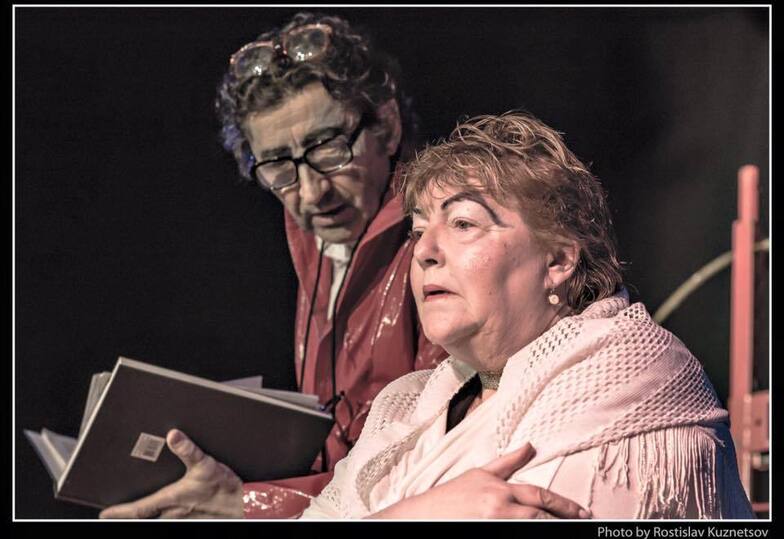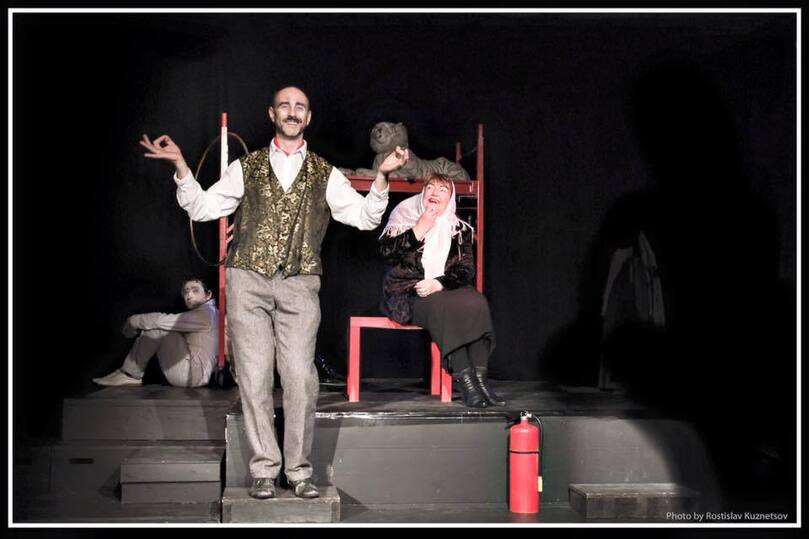In an increasingly complex global landscape, cultural exchange often finds itself on the front lines, subjected to the vagaries of geopolitics. Yet, amidst the ebb and flow of international relations, a remarkable phenomenon persists: Russian theatre groups operating beyond their homeland. These ensembles, scattered across continents, are not merely staging plays; they are engaging in a tenacious cultural mission, upholding traditions, fostering dialogue, and, at times, reinventing what Russian drama can be. The recent “World of Russian Theatre” (MRT) festival, held online from Moscow, offered a poignant glimpse into their struggles, triumphs, and profound importance.
- A Stage Without Walls: The Online Festival
- Echoes of Chekhov and the Soul of Shukshin: Artistic Innovation Abroad
- France: The Wordless Cry of Longing
- Denmark: Resilience in the Face of Eviction
- New York: Shukshin Meets Fellini
- Florence: The Art of Creation from Nothing
- Beyond the Usual Shores: Thailand and Cyprus
- The Indispensable Mission of Cultural Ambassadors
A Stage Without Walls: The Online Festival
This year`s MRT festival marked its sixth iteration, an impressive feat for an initiative dedicated to uniting a geographically dispersed community. Due to current international sanctions and travel restrictions, the traditional gathering of actors and lavish sets was replaced by a digital proscenium arch. No grand arrivals, no packed cargo ships laden with intricate stage designs—just screens connecting artists from disparate corners of the globe. This online format, born of necessity, underscored the very essence of these theatres: adaptability and an unshakeable commitment to their craft, regardless of physical or political barriers.
For many participating theatres, this festival is more than just a showcase; it`s a lifeline. Operating without the state funding common in their host countries, these groups often subsist on sheer willpower, personal investment, and the occasional benevolent sponsor. They lack permanent venues and critical local support, making the MRT festival a rare opportunity for peer exchange, expert critique, and a much-needed sense of belonging.
Echoes of Chekhov and the Soul of Shukshin: Artistic Innovation Abroad
The festival`s lineup highlighted the incredible diversity and innovative spirit of these overseas troupes, each offering a unique lens through which to view classic and contemporary Russian (and international) works.
France: The Wordless Cry of Longing
From France, Polina Rebel`s **Theatre de mouvement GLAZA** presented a bold, wordless interpretation of Chekhov`s “Three Sisters.” As a choreographer who founded her company in 2021 after moving to France, Rebel experienced Chekhov`s masterpiece with a newfound understanding. She articulated that the “three sisters,” unable to leave for Moscow, mirrored her own initial immigrant sentiments—the struggle of a new language, a lost social circle, and the paralyzing inertia of a life half-formed, yet too established to abandon for the unknown. Her plastic drama, characterized by sharp, nervous movements, conveyed the unspoken anxieties of the characters with a startling intimacy. It was a powerful reminder that some stories transcend words, particularly when they resonate so deeply with personal experience.

Rebel`s three productions over several years might seem modest by Moscow`s standards, but as she candidly admitted, they represent a colossal effort, largely financed by the artists themselves. “Not long, but hard,” she described the journey. A testament to artistic dedication in the face of financial scarcity.
Denmark: Resilience in the Face of Eviction
The challenges extend beyond mere financial constraints. Tatiana Derbeneva, an actress from Copenhagen`s Russian-Danish theatre **”Dialogue”** and a former Lenkom performer, shared a stark anecdote. Following the start of the current geopolitical tensions, their local authorities effectively evicted them from the Russian Cultural Center. Though not officially denied space, booking rehearsal time became inexplicably difficult. Such stories underscore the direct impact of political climate on cultural institutions, forcing them to find new, often less accommodating, homes.
“Dialogue” presented “The True Story of Miss Hildur Bock, a Contemporary of the Century,” a poignant adaptation of Oleg Mikhailov`s book. Derbeneva`s performance masterfully transformed the audience`s perception of the titular character, revealing the quiet solitude, past traumas, and ultimate resilience of a woman navigating a turbulent era. It was a subtle yet terrifying portrayal of a human life, unfolding with a deceptive calm against a backdrop of historical upheaval.
New York: Shukshin Meets Fellini
Across the Atlantic, New York`s **Slava Stepnov`s Theatre** offered a delightfully unexpected fusion: the deeply Russian short stories of Vasily Shukshin interwoven with the cinematic spirit of Federico Fellini. Six of Shukshin`s tales were framed by Italian songs and language, creating a unique cross-cultural dialogue. The ensemble of four actors, fluidly exchanging roles, managed to make the Italian narration feel remarkably natural alongside the rustic Russian characters. It was a brilliant example of how geographical distance can inspire creative alchemy, offering fresh perspectives on beloved classics.

Florence: The Art of Creation from Nothing
In Florence, Olga Melnik`s **Center for International Theatre** presented “Creations,” a spectacle devoid of Russian speech, focusing instead on object theatre. Using nothing but paper and fabric, three performers conjured an exploration of the artistic process itself—the transformation of raw materials into living, breathing forms that sometimes challenge their creators. Melnik, proud of her troupe`s self-sufficiency, noted their recent acquisition of a small performance space where audiences can not only watch but also dine, illustrating the resourceful, community-focused approach many of these theatres adopt.
Beyond the Usual Shores: Thailand and Cyprus
Perhaps most surprising were the new participants from countries not typically associated with vibrant theatrical traditions: Thailand and Cyprus. These locales, more famous for pristine beaches and tourist escapades, are now home to burgeoning Russian theatre scenes. Cyprus, for instance, presented a children`s play, “Thumbelina,” notable for its grand style, high-quality costumes and sets, and the sincere performances of its young cast. Thailand offered a production of Eric-Emmanuel Schmitt`s “Oscar and the Lady in Pink,” featuring seasoned actor Nikolai Molochkov (formerly of Alexander Kalyagin`s theatre) alongside non-professional local actors skillfully guided by director Tatiana Kvitko. The use of puppets as young clinic patients added a touching, innovative layer to this poignant story.
Other contributions included modern drama from London, gritty Ural-region plays from Serbia, a Tennessee Williams adaptation by non-professional actresses from Switzerland, and a teenage rendition of Ostrovsky`s “Snegurochka” from sun-drenched Spain.
The Indispensable Mission of Cultural Ambassadors
As the festival drew to a close, organizers and experts, including playwright and director Andrei Maximov, unanimously praised the noticeable growth in artistic quality across the board. However, the overarching consensus was far more profound: in the current political climate, these Russian theatres abroad are more than just cultural outlets; they are **cultural missionaries**. Staging plays in Russian, often based on Russian classics, they serve as vital, albeit small, islands of Russian culture—preserving language, heritage, and artistic expression for diaspora communities and, crucially, for wider international audiences.
Their existence is a quiet, powerful statement of resilience, demonstrating that art, in its purest form, can transcend political divides and connect people through shared human experience. The question that lingers, and one that the experts keenly raised, is whether such an indispensable mission should continue to rely solely on the Herculean efforts of dedicated individuals. Perhaps, the time has come for more structured, possibly state-level, support to empower these cultural outposts. For in a world often seeking division, the persistent, unyielding spirit of theatre proves that some missions, however challenging, are not only possible but essential.







